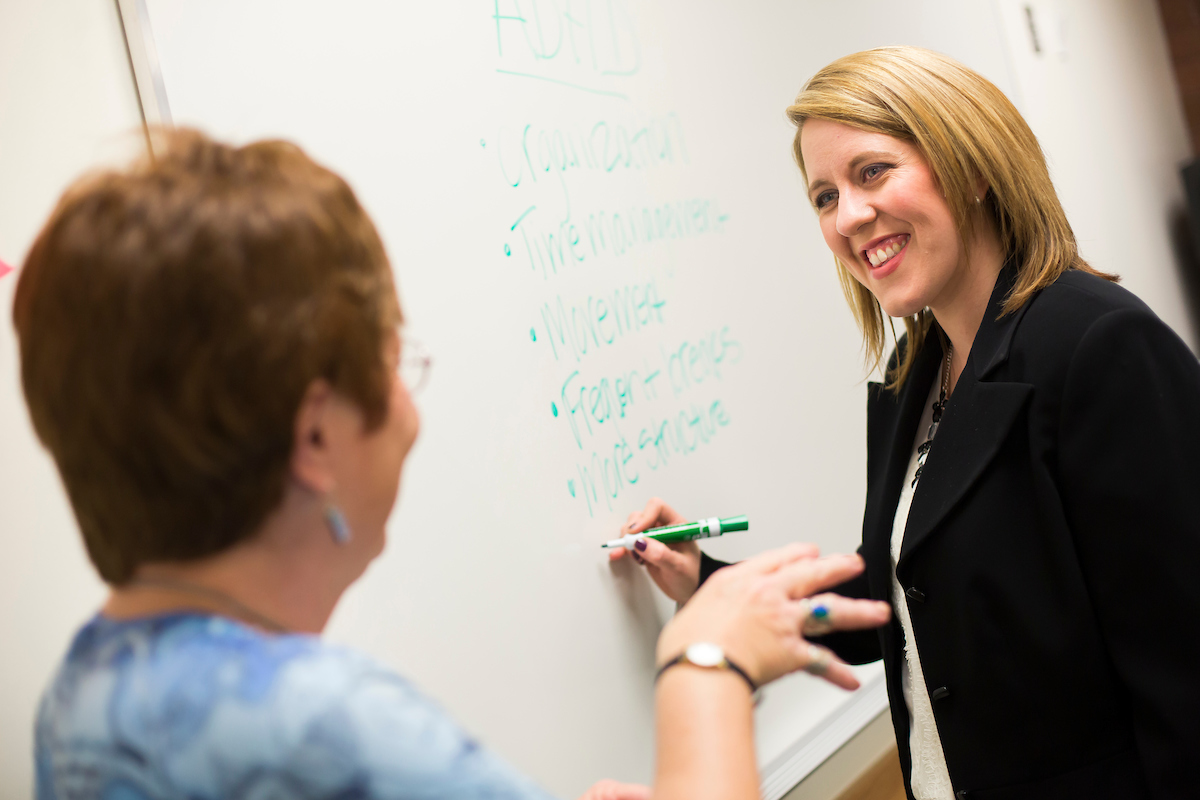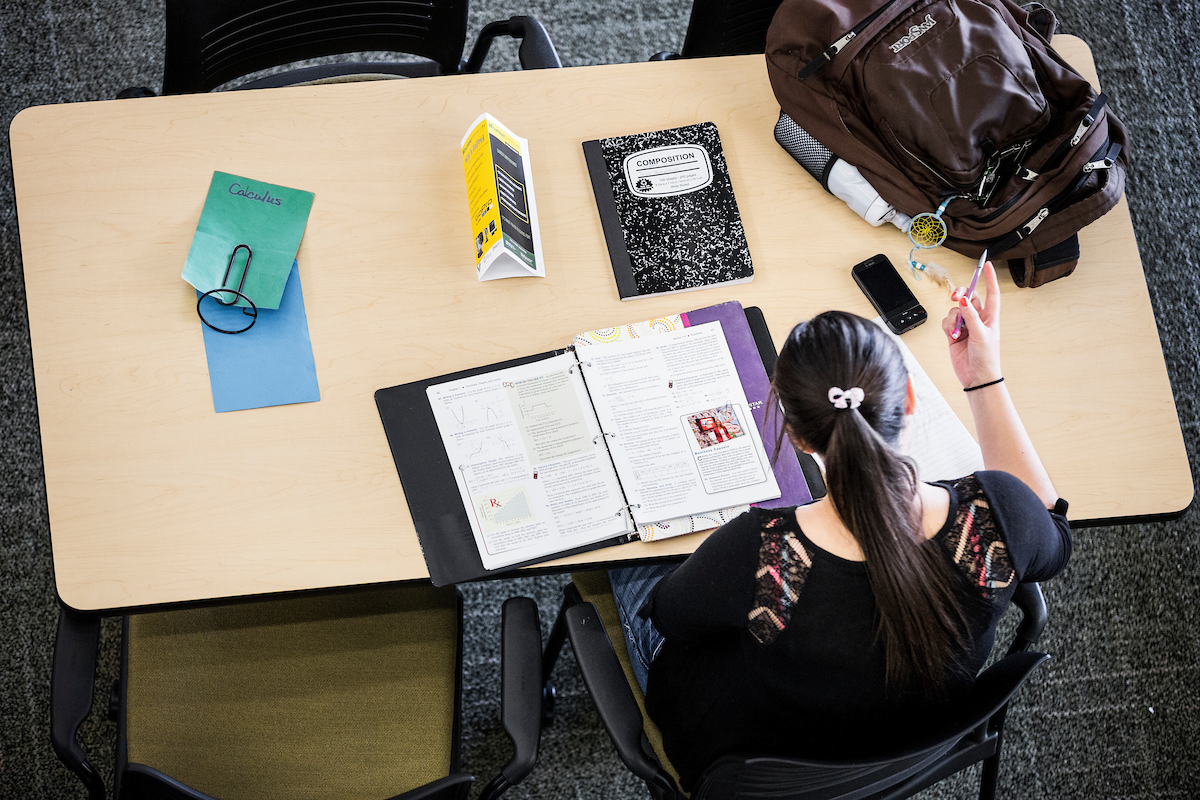Remote testing is now available. Schedule through MyUVU. See the class placement page for more information.
Passing a college-level math course requires a higher level of study and dedication than you may have seen in high school. In order to help you succeed, here are some common issues that students face, and how you might work through them.

Keep in mind that what you see in class is the result of an instructor who has had thousands of hours of practice. Even your instructor had struggles while mastering the skills of mathematics. Just like watching LeBron James play basketball doesn't turn you into an amazing athlete, or hearing a performance by Yo Yo Ma doesn't make you a spectacular musician, watching your instructor work through problems in class doesn't remove the need for practice on your part.
If you're running into difficulties working through problems outside of class, consider the following:
Look for a similar problem that's been worked out. These may be example problems in the textbook or from your class notes.
Work with a classmate as you go through the problems.
Visit your instructor during office hours. Your instructor's office hours are times that have been specifically set aside to help students who are having difficulties with the class.
Visit the Math Lab (LA201), or sign up for online tutoring through the tutoring center.
Some sections of math courses have a supplemental instruction (SI) session. Regularly attend these sessions to learn and review the most important concepts outside of class.
Also, don't let one problem hold you up. Remember that you can always come back to the problem causing you difficulty, and you don't need to wait to try later problems. However, if you're encountering difficulty on most problems, you may want to talk with somebody who can help you identify your difficulties.

Exams and homework are dramatically different. Many resources you have for homework aren't available for exams. For instance, you can't consult with friends, classmates, tutors, or the instructor while taking your test. Notes and worked examples generally aren't available doing exams, and there's no back-of-the-book you can use to make sure your work is correct. Additionally, homework assignments generally follow a lecture almost immediately, but exams tend to come days or weeks afterward. Exams require you to be able to recall a procedure on a much longer time scale than the homework does.
Keeping these ideas in mind, properly practicing and reviewing your homework will help you prepare for exams. While doing your homework is important, the way in which you do it can help you prepare (or not prepare) for an exam. Habits that will help you prepare better include:
Try to do your homework under "test conditions" as much as possible. If you've done a problem and used a resource you won't have on the test, try to do it again without that resource immediately. Repeat this as many times as needed until you can do it on your own fluently.
To help you with your ability to remember long-term, after completing one assignment, go back and work a few problems from a previously-assigned section. Perhaps have a friend or classmate choose problems at random for you to better simulate a testing environment.
Learn to check your work while doing your homework. If this is a habit while you're working through the homework, you'll be sure to do it on the exams as well. Different types of problems have different things to check for, so you'll want to be familiar with the methods you can use to verify your answers!
Remember that math exams aren't just about being able to recognize a correct solution, but being able to produce one. There's a good chance that you haven't seen the particular problem you'll be given on the exam, so practice is absolutely critical!
Do some additional problems from the sections that you struggled with the most.

Set a regular time to do your homework. In mathematics, the general recommendation is that for each hour spent in class, 2-3 hours should be spent doing homework or studying. Make this a routine during the semester you're taking a math class.
Make sure to collect and review your homework. Take note of anything you may have gotten wrong and spend some extra time studying those topics.
Contact your instructor immediately if you start to notice a problem. Math is a topic that builds on itself, and in most classes, the material gets more difficult as time goes on. Failing to fix a problem early on means that a bigger problem needs to be solved later, when there's often much less time.
Expect the pace of the course to be quick. College-level math courses often move much faster than high school math courses.
Khan Academy (and other similar online resources)
OFFICE HOURS Talk to your instructor for details about where and when, or to make an appointment. Don't let a small problem now become a much larger problem later!